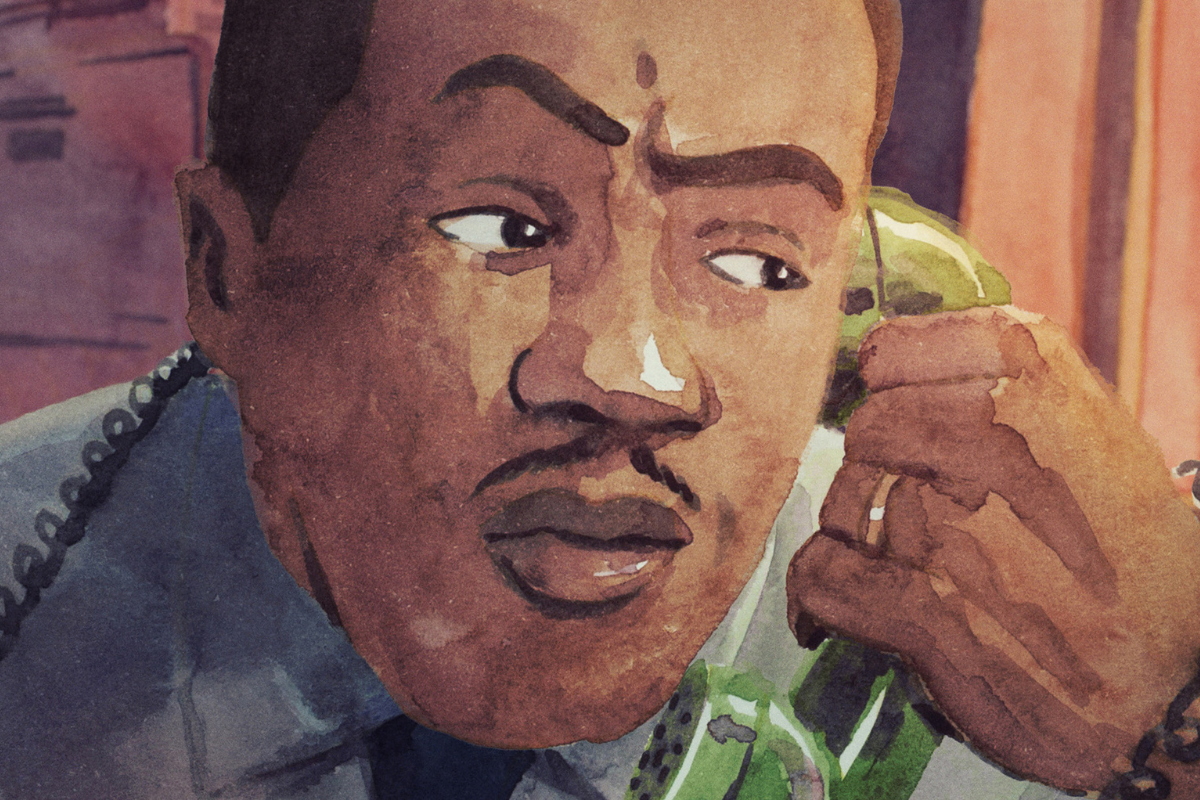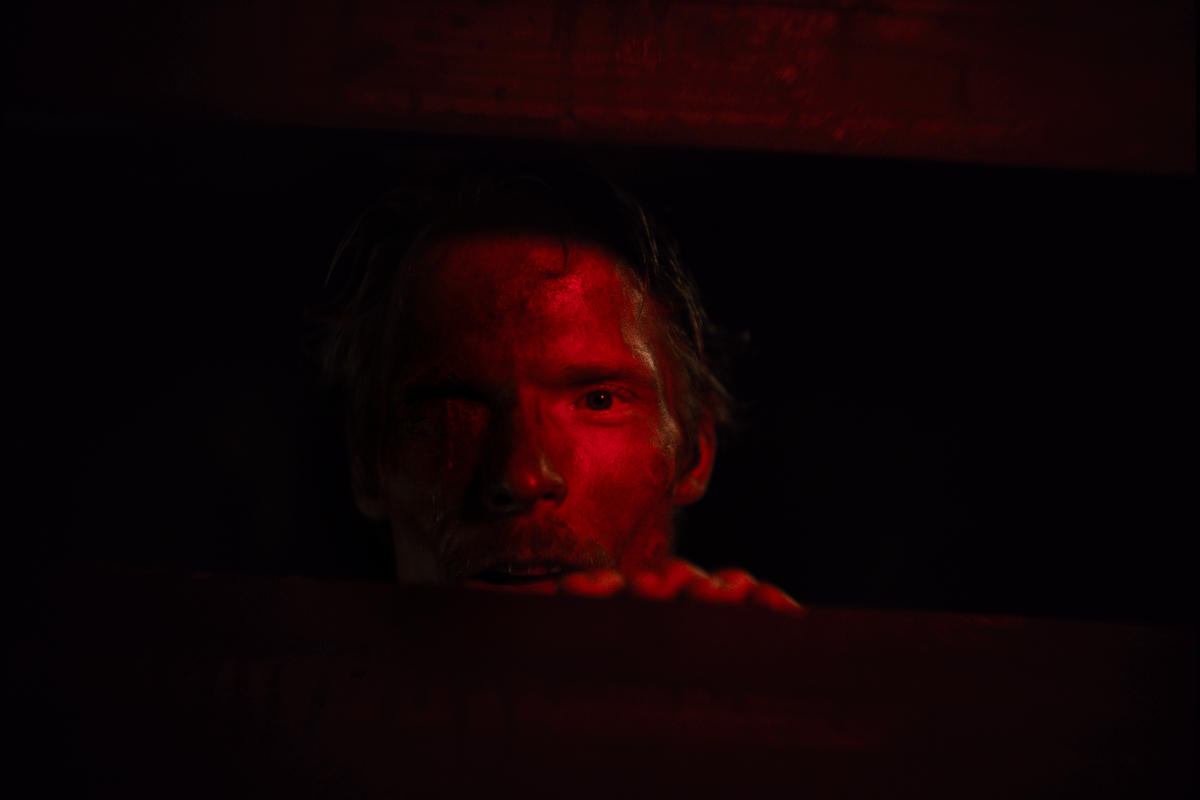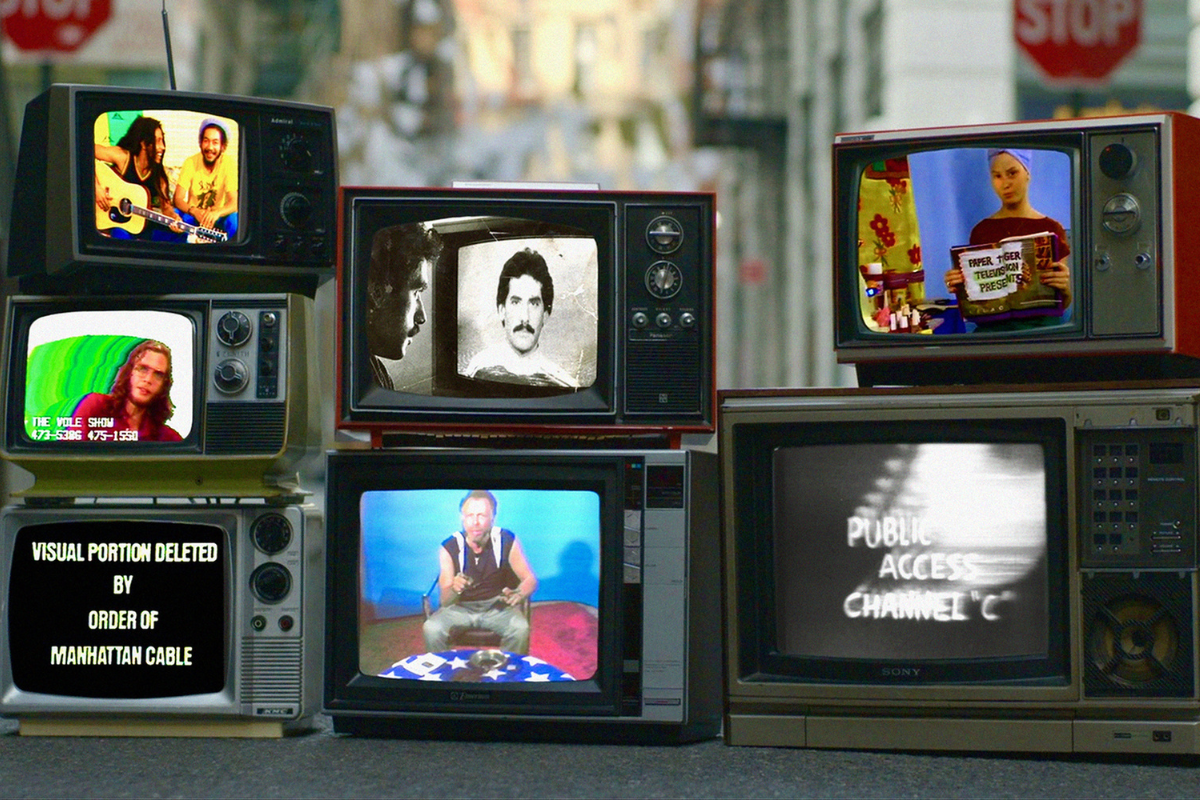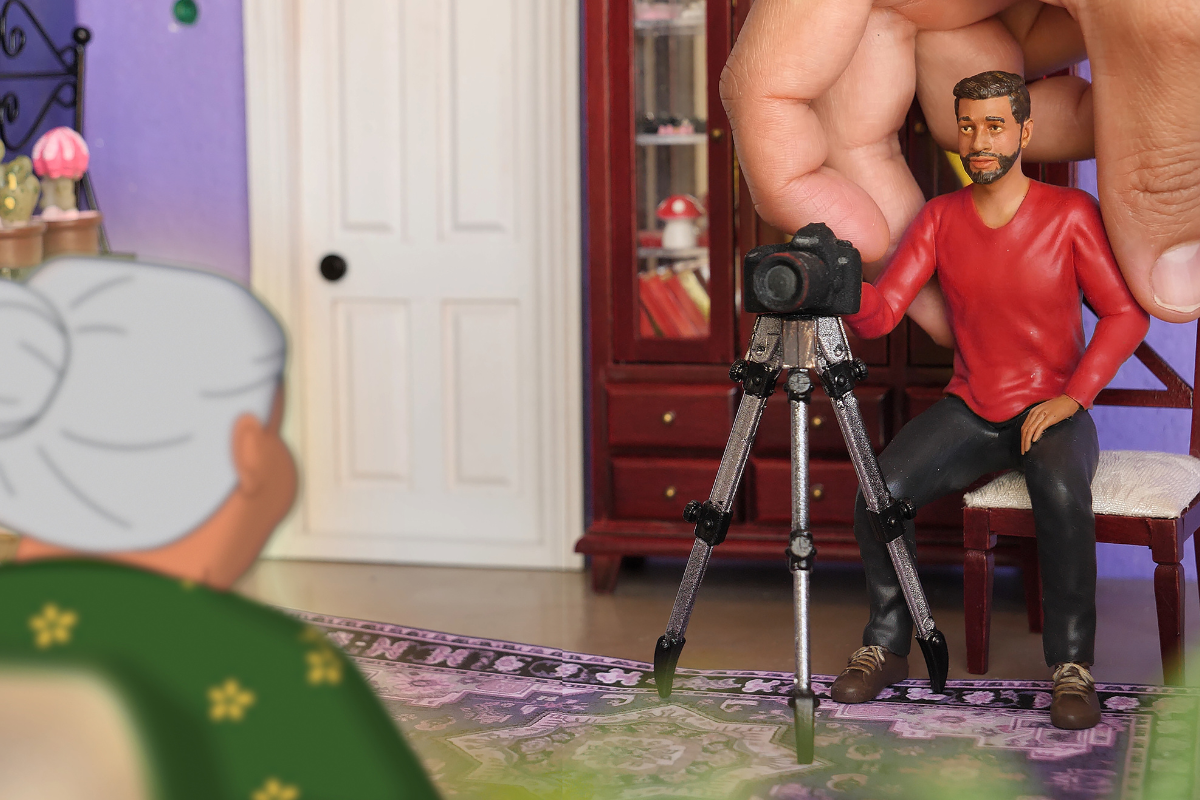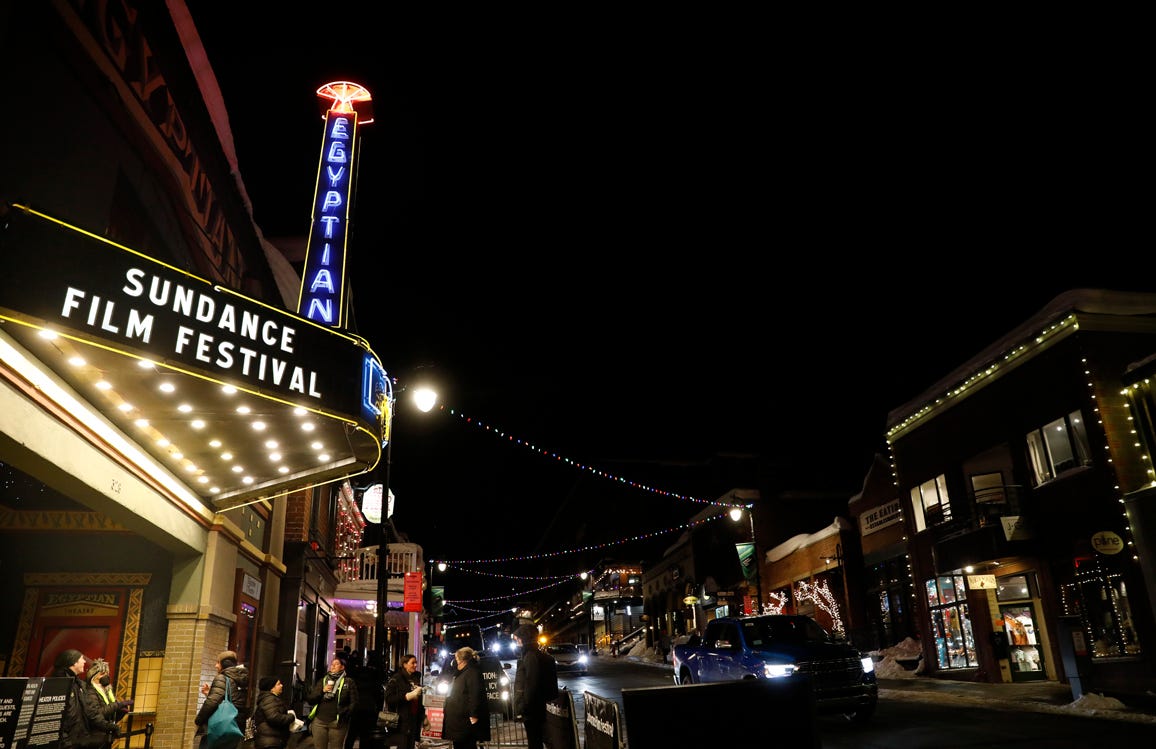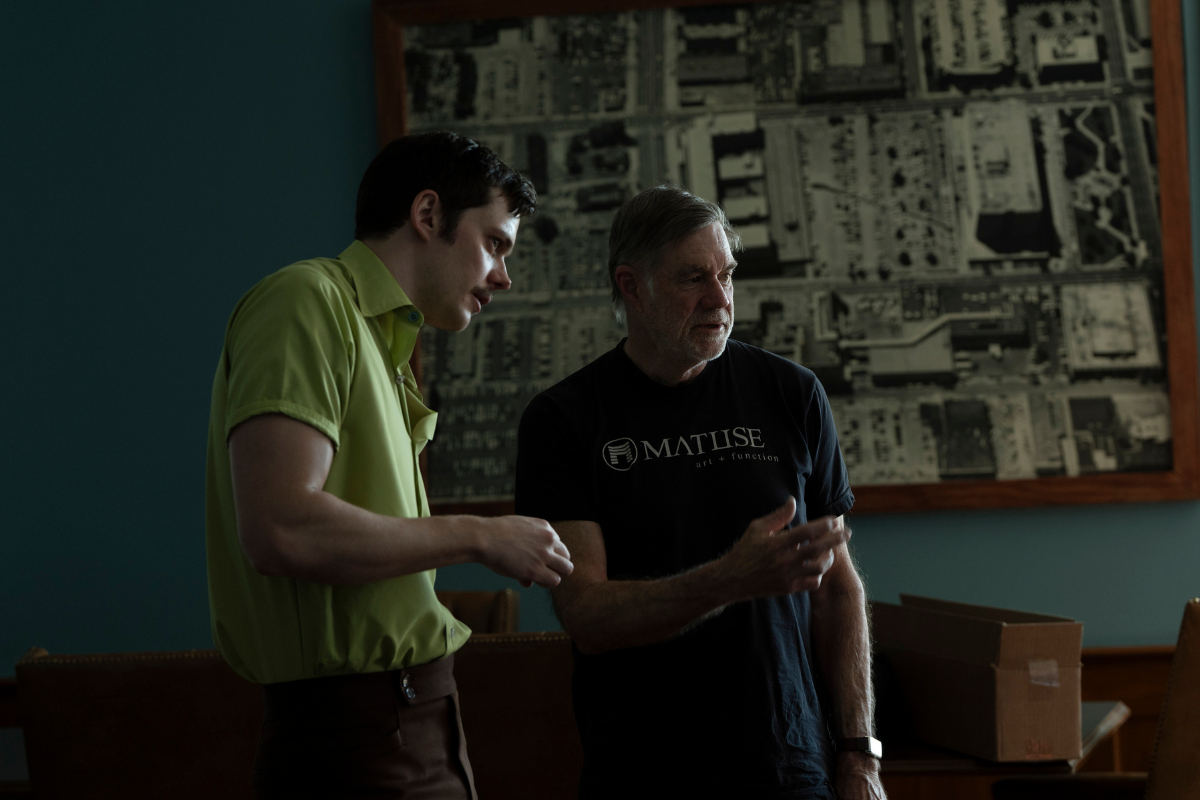INDIE SPOTLIGHT: An Interview with 2023 SXSW Independent TV Pilot ‘Metal Man’ Creator, Co-Writer and Actor Tomas Pais
Tomas Pais recently spoke with Script about the permeation of this story, breaking the character arc for Henry, creative collaboration with co-writer John Patton Ford and director Laurel Parmet, pitching and trusting you creative self.
Henry, a handyman who looks like he plays in a death metal band, enjoys the chill and laid back life he has curated for himself very carefully. After receiving a call from his business partner, Dennis, to fix a bathtub for a young couple, we quickly realize that they have just been in a big fight and all is not ok. In spite of his scary exterior, Henry, with his kind and earnest nature, can't help but feel a call to help diffuse what could potentially be a dangerous situation.
As the saying goes, "don't judge a book by its cover," is a running theme in Tomas Pais' TV pilot Metal Man. A seemingly hard exterior envelops a person with genuine goodwill and empathy - we should only hope to have someone like that in our corner.
Tomas is no stranger to show business, with his acting credits ranging from Search Party to Emily the Criminal, in which his co-writer John Patton Ford recently took home Best New Screenplay from the Film Independent Spirit Awards. Tomas recently spoke with Script about the permeation of this story, breaking the character arc for Henry, creative collaboration with co-writer John Patton Ford and director Laurel Parmet, pitching and trusting you creative self.
This interview has been edited for content and clarity.
Sadie Dean: How did this story idea come to fruition? Was character first? Or these situations?
Tomas Pais: It's a great question. I think it was just sort of born out of trying to do something that felt like, I don't want to say of a version of me, but an extension of me in some ways. I was in a place where I had a bunch of ideas for a bunch of different things. I had this lunch with a friend of mine, we were just kind of talking and I told him about these ideas and he's like, ‘Here's why that doesn't work. Here's why this doesn't work.’ [laughs] And then he was like, ‘What are you up to?’ And I had sawdust on me, ‘I'm helping a buddy build a tiki bar.’ And he's like, ‘Is that something you do a lot?’ And I said, ‘Yeah, I guess…kind of always doing handy work around the house and helping friends build stuff.’ And he's like, ‘Well, there's your show.’ [laughs] And it all just kind of clicked. I was like, ‘Oh, God, why didn't I think of that?!’ [laughs]
The more I thought about it, the more I realized, ‘I'm very much into this.’ And then it was a matter of figuring out who this guy was. Almost immediately, I was like, ‘Oh, it needs to be somebody who's kind of chill, who's bringing this sort of like Lebowski type of energy to a room,’ but something about it wasn't quite clicking for me. I’m trying to figure out this character and coming from an actor's perspective, that's what I love to do is just sit and ruminate about how to make a character interesting. And so, one day, I was listening to heavy metal in my car and I just suddenly had this vision - something just clicked - what if this guy was fully heavy metaled out with tattoos and this sort of really aggressive thing that he had externally so as a way to create an immediate contradiction with who he was, right, so that you immediately set up this expectation of somebody based on their aesthetic, to then introduce this person who's nothing like that.
Which, if you actually spend time in the metal community, which I've minimally have spent time in, you realize that there's actually a lot of them that are super Zen'd out, they're very chill. And it's very much a lifestyle for them. It's very much like this culture. And so much of it is just like, philosophical and thoughtful and empathetic and grounded. Just being at a metal show, guys will be pushing each other around and moshing and then somebody goes to the ground and then everybody stops, picks them up, sends them on their way, and then they're going back at it. [laughs] There's such a communal kindness about it.
So, all this stuff, just kind of suddenly clicked and made sense - and that was the genesis of it. And here we are.
Sadie: What was the process of breaking the story with your writing partner John ford, and then also breaking that character arc from an actor’s perspective?
Tomas: I recommend, if anybody's reading this is a screenwriter -if you struggle with sitting down and actually banging out words on a page, but you aspire to write things and create things, my advice is to make friends with very talented screenwriters who believe in your ideas and are willing to sit down and write stuff with you. That seems to be what I've found myself doing a lot. The few times that I've tried to write anything by myself, it's not good. I'm so used to reading the most amazing plays and the most amazing scripts. And so, I kind of always just end up working with people who I actually do think are super, super talented. And then it always works out in my favor.
But that said, as far as the arc, the big challenge was early on deciding, like you said, what this guy's arc was. What was his thing? What is he about? Is he in LA, running away from something? Is he trying to accomplish something? We'd already kind of agreed that he needed to be this sort of chill guy. But then the idea of the Lebowski reference came up again. And mind you, there's nothing aside from a specific essence of a character, there's nothing about Lebowski about the show… it was like what if he's not trying to get anything? What if what he's trying to do is maintain the thing that he has, and everybody else is a threat to that chill? And then the fun is watching him navigate those situations and realizing that in order to return to his chill, he needs to kind of introduce something.
And then of course, we played on the idea that, since he's there to fix something, is he fixing these people? No, not necessarily, I think what he's doing is introducing this idea of acceptance, versus fixing, and how often in life, in the face of problems, in the face of trouble, in the face of hardships, oftentimes self-inflicted, things can be resolved with empathy and humanity and the sense of acceptance, rather than trying to fix it. So, it's that kind of philosophy that also is very personal to me, felt appropriate for this guy. And it just felt like it was rich for comedy and immediate conflict. It felt fertile for fun and a lot of stories because there's a lot of handiwork. A lot. [laughs] There's so much stuff to do, but you can like go and fix. Those are the conversations that I had with, with my co-writer, John Patton Ford, sweet guy - love him to death. He just won an Independent Spirit Award for Best First Screenplay for Emily the Criminal.
Sadie: Yeah, no big deal.
Tomas: No big deal, guys. I've known him for years and he and I had wanted to do something for as long as we were friends. We had our weekly morning breakfast hangouts – it’s very non-conventional in terms of male friendship - we get together, we have our little breakfast dates, and we just chat and we talk about movies [laughs] and it's great. It's the best.
He offered to help. And then right after we did this, he went and shot Emily the Criminal. Everything that's coming to him is well deserved, obviously, couldn't be more excited for him. And then the other thing is, similarly, I reached out to a producer friend, ‘Hey, man, I'm looking for a director,’ because my director is busy editing another movie now. And they said, ‘I’ve got this young woman, she's up and coming. She's great. She's done some shorts, named Laurel Parmet.’ And right after we did that, she shot her movie called The Starling. Girl and now she's blown up! [laughs] And I'm like, this is great. All my friends are going places, and I couldn't be happier for them. It's just the best feeling in the world watching your friends get what they deserve.
Sadie: Yeah, their wins are your wins. It's so cool.
Tomas: I know. And it's not like I’m hoping to get anything out of it. I'm just genuinely happy for them, because they're my friends. They're my community, it's my village. If they're not too busy, they'll at some point, want to direct some episodes and maybe write some episodes. And it's just, it's exciting. The prospect of that is very exciting.
Sadie: So, are there plans on expanding the story, the series, looking to shop it around?
Tomas: If I'm being honest, the thing that I think I found myself being left or wanting was a notable champion of this show early on. This is obviously before John became John Ford, and Laurel. But having somebody that would champion this. Sometimes it's hard to get yourself in a room in front of people, if a) you're not famous, or b) you don't have somebody to champion this, who either has the connections to do it, or a producer attached to it. Which is why I reached out to some of these festivals. I reached out to Sundance, they were very sweet, very gracious. And then SXSW was kind enough to program us into their indie pilots competition. And it just kind of immediately felt like, even though it's not a person, it's an entity, somebody was championing this project. And it immediately opened some doors, and they've got me in the room with some people and it's opened up opportunities for me to be able to pitch this. And we're in competition there and then I got invited to do this thing called Pitch-A-Thon, which is hosted by Series Fest.
Sadie: Pitching is such a big component to being a working writer, as an actor, I feel as if maybe you have a leg up in just being comfortable and communicating in a room.
Tomas: You would think. And as I'm gearing up for this pitch, I really just have to remind myself to treat it as like a part for me, because if I have a solid pitch written down, and I can just kind of memorize as best as I can, and then when the time comes, it's just sort of there. And I can just focus on the performative aspect of it. [laughs], I hope it goes well. Who knows? We'll see, because it's not necessarily something I've ever done. But yeah, you're right. I do feel like maybe I have a slight advantage over somebody who's just been behind a computer for the last 15 years who is really eager to share an idea or story, but just hasn't had years of training and visual storytelling and communicating with body and language. [laughs] But that doesn't mean that's not possible. Sometimes an idea can still rise to the top of all that.
Sadie: Anything that you learned as a creative either as a writer, actor, and/or creative collaborator on this project?
Tomas: There's plenty of stuff that I learned during this process. The first thing that comes to mind is to trust yourself. I worked with a filmmaker in the past, who often talked about how he didn't subscribe to this, like auteur theory. And to really allow people to have ownership of the project, even if it's your baby, in order for people to bring their best selves and their best work to something. And I've never been in a position like the position that I am now, which is to really be at the sort of helm of something to this capacity of just like creating it. Being a co-writer on it, and even though I didn't direct it, it still feels like this is my baby.
And not only trusting that other people are gonna care about the project, but also just kind of trusting myself to lead this thing has been a big part of it. And that a lot of that just, I think, comes down to not listening to the little voices going, ‘well, somebody's gonna figure out that you're not actually a writer, or somebody's gonna figure out that this is actually just a version of you,’ and nothing is wrong with any of these things. Those voices are never gonna go away and if you start to listen to them, you're never going to be able to accomplish what you want to accomplish. Since getting accepted into SXSW, I think it's just been this process of like, you finally got invited to a cool party and it's not because somebody sent the invitation to the wrong address - Literally, somebody put your name on it and sent it to you. So, go in feeling like you belong there.
Metal Man SXSW Upcoming Screening
Independent TV Pilot Program at Alamo Lamar A
- Mar 16, 2023 11:45am—1:19pm


